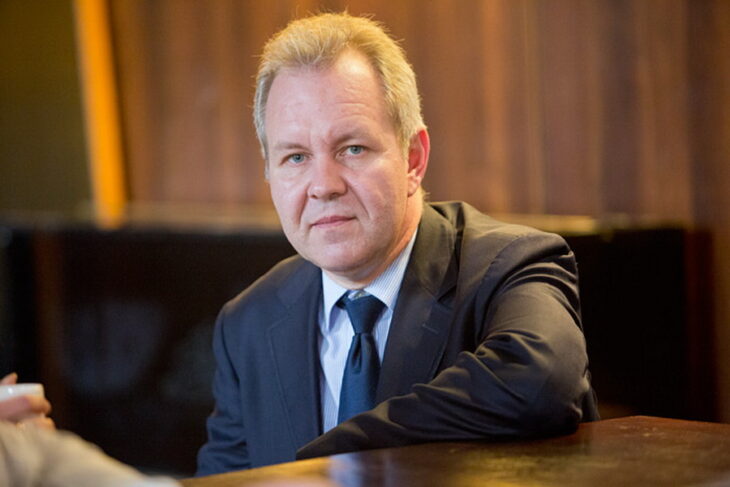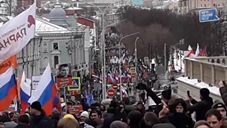
Yevgeny Prigozhin’s revolt, which has brought the Russian political community out of its long-lasting anabiosis, is often regarded as “the beginning of the end” for Vladimir Putin. It is possible to agree with this, but with great reservations.
In order to understand the prospects that are now opening up for Russia, it is necessary to realize that Vladimir Putin’s regime is not just an example of authoritarian power, relying on a close-knit group of kleptocrats. It is a political system that has set as its goal nothing less than the slowing down of historical time.
Ten years ago I wrote with confidence that Russia is in no danger of any kind of modernization, and if we compare the rate of change in our country and all the major world powers over the past 25 years, it is hard not to conclude that the country has been practically canned. The government is engaged in the destruction of science and education, the planting of religiosity, the revival of archaic technologies. Personally, it is organized according to the canons of eighteenth-century favoritism: the emperor’s “inner circle” was last less volatile in Russian history in the era of Peter the Great. Even members of the Politburo at the time of the death of General Secretary Leonid Brezhnev were on average not as long in their positions as members of the Security Council are today.
The war with Ukraine is being waged as some sort of War of the Spanish Succession was waged in the old days. The army, clearly insufficient in size and led by yet another iron-clad minion and diluted with mercenaries with a dark past, gives the enemy isolated battles, having long lost its strategic perspective. The elite spoils itself with imported rattlesnakes, while the embassies of its enemies continue to operate in the capital of the aggressor country.
The Wagner rebellion had, in fact, the only goal – to oust the talentless war minister and “actualize” the regime, not destroy it. It was an attempt not to kill, but to reanimate the system – but it failed because the system wants to exist, not to live; to stagnate, not to develop.
In recent days, one often hears that one rebellion will be followed by others; that Vladimir Putin has lost his support and the elites are ready to clash in a final battle; that maybe the facade, maybe even the foundation, of the system has cracked. I am skeptical of such assessments.
Despite the image damage incurred, the system remains resilient. The only result of the mutiny will be an increase in the number of dignitaries who will be able to exert serious influence on Vladimir Putin. The regime was not just blatantly inefficient – it limited the room for maneuvering and playing favorites, which is the very basis of a mature monarchical order.
The removal of Yevgeny Prigozhin gives the elites a sign: now much more is allowed than yesterday, but the red line should not be crossed. You can fight for the attention of the sovereign, but not against him – and therefore, we can expect that the backstage struggle will intensify and the life of the “court” will intensify.
But it is the “court,” not the emperor or the people. I’m not sure that anyone in Putin’s inner circle seriously intends to overthrow him. If a new ruler appears now, he will be faced with the need to “handle” so many problems that even in the best-case scenario he has no political future.
So I would wager that the elites will expand their degrees of freedom within the regime, allowing Vladimir Putin to be “reelected” in March 2024 and bring Russia to a final defeat in Ukraine and a deep economic crisis (for which I would allow two to four years). He himself is in a situation where he will not think of a successor: any loss of control (which at this age looks final) means the loss not of any abstract achievements, but of freedom and life – no one needs Rex Emeritus in his country, but is very much in demand by the International Criminal Court. The population has no subjectivity: it can at best condemn or admire, but not act.
In the absence of an electoral process, and with the opposition defecting abroad, only a revolution can overthrow the regime – but the recent weekend showed that the masses (unlike in 1991 or 1993) are not eager to get to the barricades.
Yevgeny Prigozhin’s revolt symbolizes not the crisis of Putin’s system as such, but its form, which emerged by the end of the 2000s after a period of relatively dynamic development. Total staff stagnation; stalled economic growth; head-on confrontation with the West; and a pathological fixation on Ukraine are only some of the trends that cannot but worry people outside Putin’s bunker. It is unlikely that the elites want to destroy the established order – this cannot bring them benefits at the moment – they want development, albeit minimal, and this, in my view, will manifest itself in one way or another in the near future.
Putin’s regime has begun a downward movement – but it is likely to be almost as slow as its maturation.





